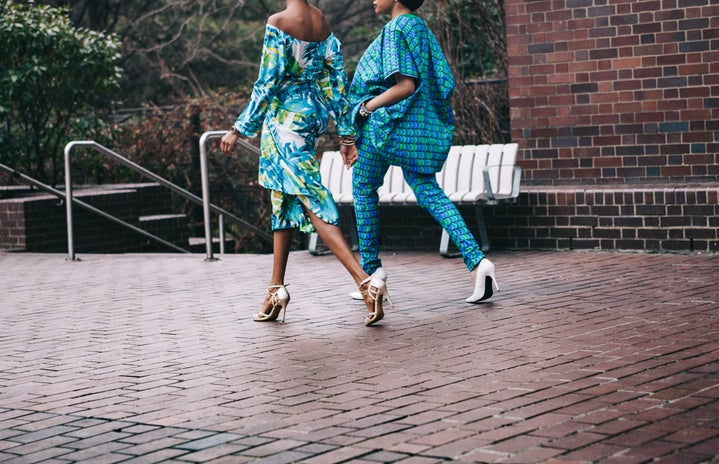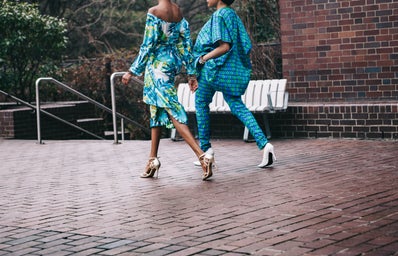Women of our generation have come a long way. However, there are still steps we have to take in order to be taken more seriously by men. Let’s take a deeper look into our campus and see what we’re doing well and what we need to work on.
Having the opportunity to interview women and people of different races, backgrounds and gender identities was interesting to see the different points of view they had. Some felt as if our campus represented women well and made them feel equally important as everyone else on campus. Others felt there was room to improve. As students of UW-Madison, we have a unique opportunity to be members of a progressive campus. However, no matter how progressive our campus is, there will always be ways we can improve how represented the students feel.
The interviews focused on how welcome and represented women and marginalized genders feel in their major and classes, and if they had enough healthcare opportunities on our campus.
Many of the white women interviewed said they have as many opportunities as men on this campus. They also feel they have all the healthcare they need at University Health Services (UHS).
White women feel more represented on our campus than women of color. The women of color interviewed feel as if they need to “put up a shield because the people around them will either not understand their perspectives, or not care to understand.” Many of the women of color also faced micro-aggressions towards their race. The women of color interviewed said they feel privileged due to their lighter skin color. They almost feel pressured to act “white” and as if they weren’t welcomed in their own community because of their lighter skin. However, these women said they have not faced difficulties due to only their gender — their race also plays a large factor in the types of aggression they face daily on our campus.
The women interviewed said they felt very fortunate in having professors treat them well, no matter their gender or race. However, they have not felt the same about the students on our campus. One woman explained that she has faced a student ignoring her and only talking to the other white males in the class. Another woman said that she did not feel welcome in her class because students would talk over her and not let her say her opinion. Women on campus face micro-aggressions like this every day and often don’t recognize it. The women who were interviewed had trouble thinking about times they had been treated differently, and didn’t realize that the things happening to them every day were, in fact, micro-aggressions towards their race or gender.
According to the Oxford Dictionary, a micro-aggression is “A statement, action, or incident regarded as an instance of indirect, subtle, or unintentional discrimination or prejudice against members of a marginalized group such as a racial minority.”
Once explaining the definition of a micro-aggression, the women were able to give several examples of things that have happened to them.
Members of the LGBTQ+ community also feel underrepresented. A non-binary person explained they are often misgendered, and people don’t feel the need to apologize or correct themselves. Professors and students often don’t use non-binary language and seem to force pronouns on members of the non-binary community. As a non-binary STEM student, they explained that they do not feel comfortable being openly trans/non-binary, because they feel as if their professors and other students will not accept them. Being non-binary, this student has felt as if they are supported through the UW campus, but they have expressed feeling “erased” by students and overheard gossiping about their gender.
As for healthcare on the UW campus, the women and non-binary students I interviewed have expressed that UHS provides a lot for their needs. However, the wait time is often long; the students may wait days or weeks until they are able to be seen. This could be fixed by finding more staff to treat students and having more flexible hours. While the physical health aspect of UHS seems to do the job for the students, the mental health services seem to not have enough support. It is hard to find open spots for support groups or open times to come in and talk to a professional.
So, how can we help women, women of color and members of the LGBTQ+ community feel more respected and represented?
Some women stated that allowing a more equitable amount of women from all areas and backgrounds to be accepted into this campus would help representation. While the university may work hard to accept students for who they are, a woman of color has stated that more “support groups on campus would help women find their niche and acceptance on campus.” A non-binary student recommended that “professors and students should have more training/exposure to knowledge about gender inclusivity.” They also brought up the fact that there are not enough gender-neutral bathrooms — some buildings don’t have any — and recommended there be at least one per building and at least one with a shower in every dorm. There is a lot more that we can do to represent these groups on campus, but starting with these is a good start to making all of our UW students feel welcome.
Reference:



